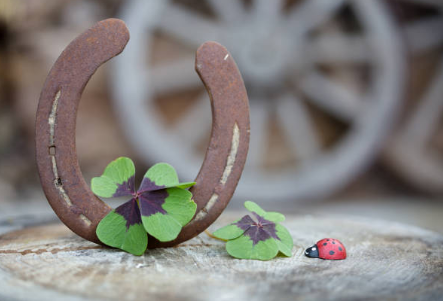
One cup of vinegar, one cup of water, and one drop of dish soap should be combined. Spray it onto any clover patches after shaking it up. The clover’s leaves will become drier thanks to the vinegar, and the dish soap will ensure that it sticks. To completely eradicate the clover, you might need to spray over a period of weeks. Continue reading, you will learn more about the methods to get rid of clover in your yard.
Table of Contents
What is Clover?
The plant known as clover is a legume and a member of the pea family. It was developed in Europe before arriving in the United States. in the late 1600s. Clover can now be grown for hay or for use as forage by wildlife, or it can be used in food plots to draw in other animals like rabbits, deer, and turkeys. Over 300 species are available for selection.
It’s challenging to eradicate clover because of its extensive root system. It is perfect as a grass substitute in yards with clover because the clover stays green all year in northern climates thanks to the deep roots of the plant. Three leaves and either pink or white flowers can be found on the clover.
What’s Causing Clover in My Lawn?
There are numerous causes for clover to appear on your lawn, the majority of which are related to the soil.
- Wrong Soil pH: For most lawns, a soil pH between 6.0 and 7.0—a measure of how alkaline or acidic the soil is—is ideal. It will be more difficult for grass to grow on your lawn and much easier for clover if the soil is too acidic. Fortunately, adjusting the pH can be done with soil amendments like lime.
- Poor Nitrogen Levels: In soils with low nitrogen levels, clover grows well. When compared to clover, which can get the nitrogen it needs from the air and effectively create its own fertilizer, grass needs the nitrogen in the soil to grow well. If you’ve applied too much quick-acting fertilizer, your soil may be nitrogen deficient. They encourage quick grass growth, but over time, they can degrade the quality of your soil. You can prevent this by switching to organic fertilizers like manure or cornmeal.
- Compacted soil: Your grass can’t get the nutrients, including nitrogen, air, and water it needs if the soil is compacted. Fortunately, a core or spike aerator can be used to dissolve compaction.
How to Get Rid of Clover Naturally?
Here are the top ways to eliminate clover in your lawn the natural way:
Pull It Out by Hand
You can manually eradicate clover from small patches. Pull the clover out, roots and all, by gently loosening the soil with a spade. Clover will regrow if any of its roots are left behind.
Deprive It of Oxygen and Sunlight
Clover can be eliminated by denying it any oxygen or sunlight. To prevent it from flying up, cover the patch with plastic sheeting or a garbage bag and secure the corners with rocks. In a few weeks, the clover ought to be eliminated as a result. Please note that using this method will also kill any grass that gets underneath the plastic.
Spray a Vinegar Solution

With this natural home remedy, you can make your own non-toxic weed killer.
- Combine 1 cup of vinegar, 1 cup of water, and 1 drop of dish soap.
- Spray it onto any clover patches after shaking it. The dish soap will ensure that it sticks while the vinegar will dry out the clover’s leaves.
- To completely eradicate the clover, you might need to spray over a number of weeks. Spray the solution carefully because vinegar can unfortunately harm grass.
Apply An Organic Herbicide
You can use A.D.I.O.S. which is a selective, organic herbicide that will kill clover but not harm surrounding grass. The weed will merely dwindle and eventually die if you spray it on clover.
How to Prevent Clover on Your Lawn?
There are several ways to stop clovers from ever appearing on your lawn.
Spread Organic Fertilizer
Your lawn will be less conducive to clover by using organic, slow-release, nitrogen-rich fertilizer. Because it costs less and grows grass more quickly, some homeowners prefer conventional, fast-release fertilizer. Long-term, however, healthier growth can be achieved by using organic fertilizer. Cow manure, guano, blood meal, bone meal, earthworm castings, and liquid kelp are examples of common organic fertilizers.
Use Corn Meal Gluten
The organic peptides that are released into the soil by the gluten in corn meal stop the growth of the clover. If you’ve recently reseeded your lawn, be careful not to use this method because it won’t work on existing clover but will indiscriminately stop new seeds from sprouting.
Fortunately, this action won’t harm the local grass that already exists. Both locally-owned garden stores and online retailers sell corn gluten meals.
Mow Grass High
Grass that is under 3 inches tall is ideal for growing clover. This height strains your grass, which facilitates clover spread. By keeping your grass cut high, you give it an advantage and make it simpler for it to compete with the clover.
What Are the Different Types of Clover?
There are more than 300 species of this invasive plant, despite the fact that most people only associate clover with the straightforward three-leaved plant. The most common varieties, and the ones you’re most likely to see in your yard, are as follows:
- White clover
- Red clover
- Crimson clover
- Strawberry clover
Why You May Want to Keep Clover on Your Lawn?
Clover may have an unattractive appearance, but it has advantages for your lawn.
- Natural Fertilizer: Due to its symbiotic relationship with helpful bacteria, clover can take in nitrogen from the air. In the end, it might make your lawn greener and lusher. This will, however, keep it growing and from out-competing your grass.
- Weed Prevention: Clover and other weeds cannot grow on a lawn that has been mowed high. However, allowing clover to proliferate is a good choice if you prefer short, tidy grass that is under 3 inches long. It is difficult for other weeds to establish roots, grow, and compete with your grass because of the shade that clover’s leaves cast over the soil.
What Are the Pros and Cons of Clover?

If you’re like most people, and clover has taken over your lawn, you probably want to get rid of it or at the very least stop it from spreading. The fact that clover has some significant advantages must be understood, though. The main advantage is that clover works as a natural fertilizer for your lawn, enriching the soil with nutrients like nitrogen. You can get away with cutting your lawn less frequently if it is covered in clover rather than grass because it doesn’t grow very high.
Clover can actually help your yard weather a drought without drying out too badly because of its dense root system, which ironically can make your lawn look greener, and longer. Finally, clover flowers attract beneficial insects like bees.
Nevertheless, clover is a weed that spreads rapidly. Clover should definitely be controlled before it becomes a problem if you want to have a lovely lawn covered in lush, green grass. If you’re wondering how to get rid of clover, check out the list of five methods below.
FAQ on Get Rid of Clover in Yard
How Do I Identify Clover?
White clover, red clover, and strawberry clover are the three varieties of clover you are most likely to find in your yard.
—White clover (Trifolium repens): The most frequent species of clover found in lawns is white clover, which is a hardy, low-growing species. White clover spreads and grows rapidly. White to pink are the colors of its florets.
—Red clover (Trifolium pratense): Over white clover, red clover grows taller and bushier. Its floret colors range from magenta to rose.
—Strawberry clover (Trifolium fragiferum): White clover and strawberry clover are related, but strawberry clover has smaller white or pink flowers than white clover.
Should You Get Rid of Clover?
Not all clover problems arise. Keeping or even planting clover in your yard has numerous advantages. In addition to lowering soil erosion and improving soil nitrogen levels, clover also attracts pollinators, is low-maintenance, and benefits the environment. You can maintain a lush lawn all year long with clover. Keeping the clover and incorporating it with your regular grass seed may be worthwhile if you don’t mind more bees buzzing around.
Why is Clover Taking over My Backyard?
The development of clover may indicate that your lawn requires additional care.
Verify that your lawn is getting the proper amount of water. Broadleaf weeds are attracted to thirsty grass, which stresses out your lawn.
If you are suddenly having problems with clover plants growing in your yard, check to see if your lawn is suffering from one of the following:
—Low nitrogen levels: While grass requires soil rich in nitrogen to survive, clover thrives in soil that is low in nitrogen. To increase nitrogen levels without lowering soil quality, use organic fertilizer or cornmeal.
—Compacted soil: Similar to how compacted soil is not ideal for growing grass, clover can tolerate the deficiency in nutrients. If you believe your soil to be compacted, aeration can help to loosen it.
—Unbalanced soil pH: Most lawns prefer a soil pH of 6.0 to 7.0. Strawberry clover can grow in a pH range of 5.3 to 8.2 and red clover in soil with a pH higher than 7. To give your grass the best chance possible, have your soil tested and make the necessary adjustments.
Conclusion on Get Rid of Clover in Yard
It is technically a legume because clover is a member of the pea family of plants. The Northern Hemisphere is where clover first appeared, and it is a European native. Clover can be eliminated using your hands, a mower, a natural weed killer, and a nitrogen-rich fertilizer.